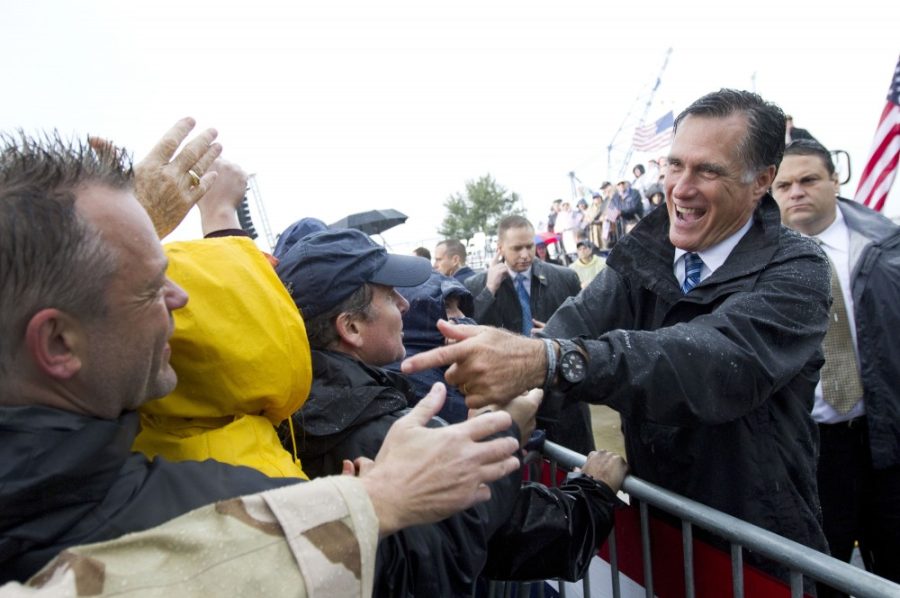LEXINGTON, Va. — Republican presidential candidate Mitt Romney slammed his rival’s international strategy as weak Monday in a speech at Virginia Military Institute.
But many of the remarks in his critique didn’t pass the truth test, and despite his tough tone, the foreign-policy positions he outlined hewed close to those already held by President Barack Obama.
“I believe that if America does not lead, others will — others who do not share our interests and our values — and the world will grow darker, for our friends and for us,” Romney said. “America’s security and the cause of freedom cannot afford four more years like the last four years.”
The speech lambasted Obama’s response to the Arab Spring, specifically his administration’s handling of the violent attack on the U.S. Consulate in Benghazi, Libya, on Sept. 11, which killed Ambassador Christopher Stevens and three other Americans.
“I want to be very clear: The blame for the murder of our people in Libya, and the attacks on our embassies in so many other countries, lies solely with those who carried them out — no one else,” Romney said. “But it is our responsibility and the responsibility of our president to use America’s great power to shape history — not to lead from behind, leaving our destiny at the mercy of events. Unfortunately, that is exactly where we find ourselves in the Middle East under President Obama.”
In the address before more than 500 Virginia Military Institute cadets and local supporters in Lexington, Va., the former Massachusetts governor made his case to voters that he would be a more capable commander in chief than Obama.
Romney said Obama “missed an historic opportunity” to provide leadership during his term, a time of great upheaval in the Middle East.
As president, Romney said, he would work with U.S. partners to arm rebels in Syria, make aid to Egypt conditional on the development of democratic institutions — as well as peace with Israel — and advocate an independent Palestinian state coexisting with Israel.
Coming off a strong performance last week in a debate with Obama that centered on domestic policy, Romney is looking to boost his reputation in international relations, the topic of a debate coming Oct. 22. Although voters often don’t base decisions on foreign policy, Romney’s line of attack Monday dovetailed with his campaign’s overarching narrative that Obama is a weak leader.
Romney’s most serious charge in the speech was that the president’s national-security strategy is “not one of partnership but of passivity,” said Karl Inderfurth, a senior adviser at the Center for Strategic and International Studies, a public-policy research institution.
In reading a copy of the speech, Inderfurth said, he was reminded of the old political catchphrase “Where’s the beef?”
“I think it’s fair to ask Gov. Romney: What’s his beef?” said Inderfurth, who was an assistant secretary of state under President Bill Clinton. “He basically endorses President Obama’s approach on Iran, Libya, Syria, Afghanistan and creating a Palestinian state, all the hot-button issues. His rhetoric is critical, but his actual policy prescriptions are quite in line with Obama.”









